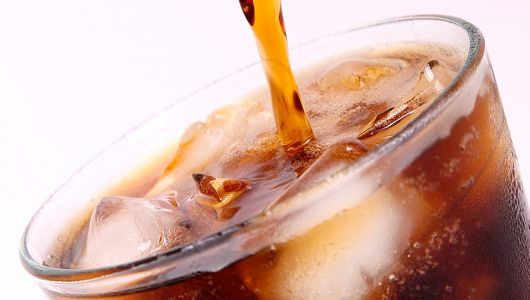Americans may be thinking twice before indulging in a soda, as per-capita consumption rates have fallen to their lowest levels since the mid- 1980s. Regular soda has been on a slump but more lately, diet sodas -thought to be better for our waistlines- are also suffering.
Soda is the biggest non-alcoholic beverage category with U.S. with soda sales rising 1.4 percent to $77.4 billion last year. Coca-Cola barely posted a 0.1 percent increase last year, but that was its first increase in a number of years. Pepsi fell 1.8 percent. The decline in their “lighter" versions has seen a more dramatic slump with Diet Coke falling 6.6 percent and Diet Pepsi falling 5.2 percent.
Despite this news, sales of non-alcoholic beverages rose 2.2 percent last year, as Americans are increasingly reaching for bottled water rather than a Coke or Pepsi. Analysts predict that by 2017, the amount of bottled water we consume could surpass soda.
Companies like Coca-Cola and Pepsi are trying marketing tactics to lure consumers back such as Coke’s personalized campaign of individual names on their bottle. I couldn’t find a Patrice coke, but my best friend could treat me to a Best Friend pop.
What’s driving this bottled drink shake-up? In part, consumer preferences whether for non-carbonated drinks or to avoid artificial sweeteners may be a big factor. Then there are the soda bans in major U.S. cities, meant to combat obesity. There is evidence that these bans have absolutely no effect on obesity. All of these factors are contributing to which bottle Americans are reaching for in the grocery aisle.
CBS News reports:
One reason for the decline in diet soda consumption has been the growing concern about the potential health effects of the commonly used sweetener aspartame. Beverage Digest Editor and Publisher John Sicher told CBS MoneyWatch that those concerns about the chemical, which is sold under the brands Equal and NutriSweet, are without justification.
"Aspartame in fact is a safe and good sweetener," Sicher said, adding that the Food & Drug Administration and its regulators in Europe have given the sweetener as clean bill of health.
…
Coca-Cola, PepsiCo and other carbonated beverage companies are trying to develop alternative sweeteners using stevia, a plant found in the jungles of Paraguay and are hoping to find what Bloomberg News described as the "industry's holy grail — a soda that tastes as good as the iconic colas, is sweetened naturally, and has zero calories."
…
"Health officials, legislators, and other policy makers should escalate their efforts to further drive down consumption by supporting policies that decrease availability in public places, raising new taxes, requiring warning labels, and otherwise promoting water as the default drink," [Michael Jacobson, the head of the Center for Science in the Public Interest, a leading critic of the soda industry] said in a recent press release.
Incentives matter. Banning soda or using sin taxes to drive the prices higher than other drinks, are effective public policy tools that unfortunately erode our choice to purchase what we think is in our own best interests. Nobody should drink six diet sodas a day, but, on the other hand, is this a proper field for government intervention? Government intervention also assumes—incorrectly—that businesses can’t be trusted to develop products that appeal to the public but are also healthy. Experimentation and private demand, not government intervention, are the keys to improvement. Coke and Pepsi's experiments with stevia are illustrations of this.
It should be the choice of moms and dads when they go shopping whether they opt for soda, juice, or water – not a mayor or a bureaucrat in Washington, D.C. It’s not the government’s business to choose winners and losers in the marketplace among companies, products, and industries. A free economy allows consumers to respond to the products that are best and the others will fall away.
Whether consumer preference is changing because of or despite these policies, is an interesting question. However, market tampering in the long run only hurts choice.


